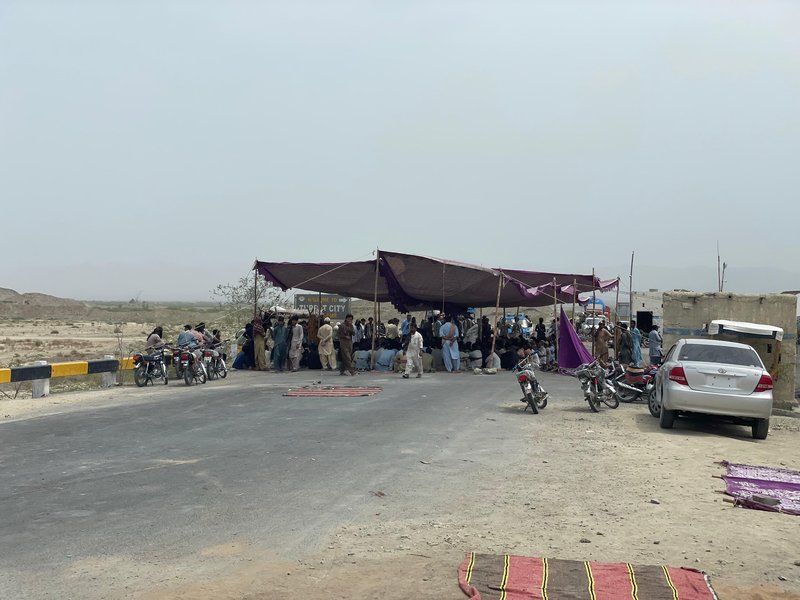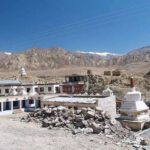
Border Shutdown Triggers Deepening Hardship
Since March 19, Pakistan’s closure of the Abdohi border crossing between Kech district and Iran has devastated Baloch communities, pushing hundreds of families into hunger. The Baloch Yakjehti Committee (BYC), a prominent rights group, decried the move as economic exploitation. With cross-border trade halted for over three months, local traders and labourers have seen their income vanish, as the border had served as a lifeline for livelihoods in this remote region.
From Trade Lifeline to Economic Death Sentence
The Abdohi crossing formed a vital artery not only for formal trade but also for informal channels – including goods from Iran, fuel, and essential supplies – that sustained workers, shop owners, transporters, and small-scale vendors. A report by South Asia Partnership Pakistan highlights that around a million Pakistanis, both directly and indirectly, depend on this trade corridor alone. With business stalled, fast-moving cash has stopped circulating. Auto mechanics, retail shops, transport drivers, and support workers are now penniless, mirroring the widespread economic paralysis that has descended on Kech.
Protests Meet Heavy-Handed Response
In the wake of growing distress, local communities mobilised peaceful sit-ins in Kech. By the second day, hundreds had gathered demanding immediate reopening of the border and an end to enforced deprivation. The BYC alleges that state forces resorted to baton charges and forceful dispersal rather than dialogue, deepening resentment and escalating tension.
State Policies Under Fire
Baloch activists accuse Islamabad of deliberately marginalising border communities. The irregular border closures, intense security presence, token systems for vehicle movement, extortion by military-linked groups, and sporadic seizures of goods reflect what many describe as a punitive state policy targeting economic stability.
Border Sanctions: More Than Just Abdohi
Closure woes are not unique to Abdohi. Reports from other border towns like Washuk, Panjgur, Nokundi, and Mand-Pishin show similar patterns of hardship. A dawn of trader protests in late 2024 and early 2025, particularly in Rakhshan and Makran divisions, targeted these deeply felt restrictions, like the “three‑day weekly” shutdowns, which led to shuttered hotels, banks, and shops and left thousands unemployed. Locals describe these actions as economic death sentences.
Smuggling Fills the Void
Faced with no alternatives, thousands in districts like Washuk have turned to smuggling, especially diesel and Iranian oil, as the only survival route. Estimates suggest around 1,000 vehicles daily ferry smuggled fuel across Abdohi and nearby crossings. Authorities’ intermittent crackdowns sow further unpredictability, threatening to plunge already fragile families into deeper crisis. With 71% of Balochistan’s population living on under $2 per day, any disruption in this informal economy risks tipping entire regions into famine and collapse.
Human Toll: Hunger, Unrest, Despair
Loss of trade has halted money circulation, starving not just traders but all linked sectors, repair shops, markets, food stalls, transport services. Anecdotes from auto mechanics in Turbat and Mand recount dire scenes: families skipping meals, fathers unable to support children, and youth facing stark choices between risking smuggling or falling into crime or insurgency.
Longstanding Grievances Fuel Discontent
Underlying the economic crisis are entrenched Baloch grievances, decades of under-development, minimal job access, and political marginalisation. Their region is rich in resources, yet locals earn no benefits. The scale of forced disappearances, unlawful arrests, and civilian repression, cited in recent Baloch protests and crackdown events, has only amplified resentment.
Protests Spread, Calls for Free Trade Intensify
Border protests have reverberated beyond Kech. In October 2024, thousands rallied at the Balochistan Assembly, accompanied by political leaders, demanding open trade with Iran and Afghanistan as a lifeline to dignity and survival. They were joined by regional ministers, pressing for unrestricted access to border routes to lift Balochistan out of poverty.
A Fragile Crossroads: Hope or Escalation?
With the protest movement gaining momentum, there’s a turning point approaching. Authorities face hard questions: Will they reopen Abdohi and launch sustainable economic programmes? Will they quell demonstrations with force, feeding further radicalisation? Or will they silence demands and embitter Baloch youth further, potentially driving more support for militancy?
Path Forward: Opening Borders, Empowering Communities
Experts and local leaders argue that only robust, structural reform can prevent further unravelling. They call for permanent, regulated border trade systems featuring transparency, reliable infrastructure, fair taxation, and oversight to stop extortion. Integrating Abdohi and other frontier crossings into formal trade corridors could revitalize commerce and rebuild trust. Paired with investment in education, jobs, and healthcare, this might begin to close the longstanding gap between Balochistan and Pakistan’s core provinces.
Conclusion: Human Stakes at a Precarious Boundary
The closure of Abdohi border is more than a trade disruption, it represents the denial of survival to border communities whose economic, social, and cultural lives hinge on that exchange. With hunger rising, indignation swelling, and a simmering history of marginalisation fuelling distrust, Islamabad must act swiftly. Reopening Abdohi with respect and investment could defuse a critical flashpoint, restoring dignity, and perhaps peace, to a region forced to choose between starvation and instability.




































Leave a Reply